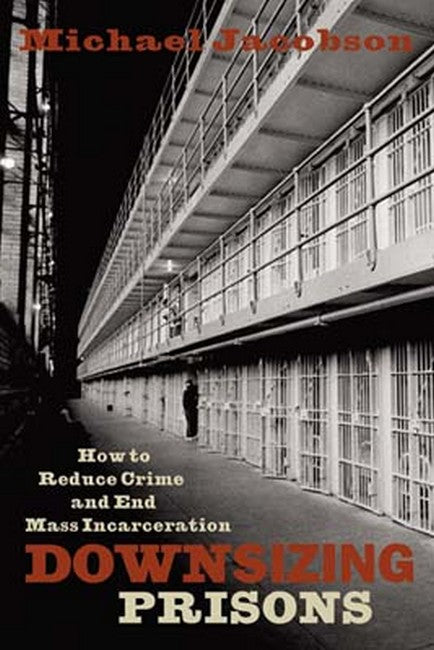Over 2 million people are incarcerated in America's prisons and jails, eight times as many since 1975. At current incarceration rates, an African American born in the U.S. today has a 30 per cent chance of spending some time in prison. Mandatory minimum sentencing, parole agencies intent on sending people back to prison, three-strike laws, for-profit prisons, and other changes in the legal system have contributed to this spectacular rise of the general prison population. After overseeing the largest city jail system in the country, Michael Jacobson knows first-hand the inner workings of the corrections system. In Downsizing Prisons, he convincingly argues that mass incarceration will not, as many have claimed, reduce crime nor create more public safety. Simply put, throwing away the key is not the answer. Instead, Jacobson suggests that our prison system needs a massive overhaul. Given the dire budget shortfalls facing most states, there really is no choice: we no longer have the revenue to continue prison expansion while simultaneously supporting education, health care, and lower taxes. Downsizing Prisons examines specific ways that states have begun to transform their prison systems. Jacobson offers practical policy solutions and strategies, including: changing how parole and probation agencies operate, significantly reducing punitive sentencing and "technical" parole violations, and supporting drug-treatment programs for low-level drug offenders. These policy changes can actually increase public safety as well as save money. As our prison populations swell to record levels, it is clear that the time to reform our prison system has come. Downsizing Prisons offers a clear and persuasive plan of action.

